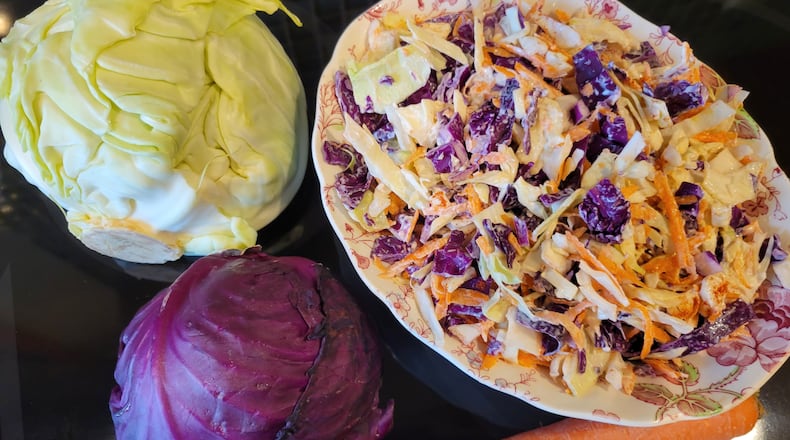“Je n’ai pas un radis,” which translates literally as “I don’t have a radish,” means “I’m broke.”
The turnip (“navet”) is the subject of many uncomplimentary French expressions. “C’est un navet” (“it’s a turnip”) means “I hate that movie.” “Avoir du sang de navet,” which translates literally as “having the blood of a turnip,” means “you are spineless.”
One must be careful with some vegetables. For example, “en avoir gros sur la patate” (“having a lot on the potato”) means “having a heavy heart” or “being resentful.” On the other hand, “avoir la patate” (“to have the potato”) is equivalent to an English use of a vegetable, “to be full of beans” or “full of energy.”
However, beans are less well-regarded in French colloquialism. “C’est la fin des haricots” (“it’s the end of the beans”) can means “it’s the last straw,” or much more colloquially “you’re screwed.”
“Le chou” is the French word for cabbage. There are too many French colloquial expressions using “chou” to list here, but most of them reflect unfavorably on the person being referred to as “chou.”
“Aller planter ses choux,” which translates literally as “go plant your cabbages,” means “go live in the country,” or probably more like “you’re a country hick.” “Tu es bête comme un chou” means “you are as dumb as a cabbage,” in other words you’re really stupid.
“J’ai pris le chou,” which translates literally as “I took the cabbage,” means “I had a quarrel” with someone. On the other hand, “mon p’tit chou” (“my little cabbage”) is a term of love or endearment.
My all-time favorite French vegetable expression is “les carottes sont cuites” (“the carrots are cooked”). The phrase can mean “it’s all over” or more colloquially “you’re in deep doo-doo.”
The most famous use of “les carottes sont cuites” came during World War II. The frequent broadcast of that phrase over the BBC on June 5, 1944, was the secret signal to the French Resistance (and not understood by the Germans) that D-Day was to occur the next day.
Speaking of cabbage and carrots, I love making slaw with high-quality organic or local ingredients. I grate a large carrot into a bowl, then chop the cabbage roughly.
I like combining purple and green cabbage into slaw. More colorful.
I prefer moistening the slaw with a mix of 3 parts mayonnaise to 1 part Dijon mustard. But oil and vinegar could be used instead – for a more Germanic rather than French version.
MOON Co-op is Oxford’s consumer-owned full-service grocery, featuring natural, local, organic, sustainable, and Earth-friendly products. The store, located at 516 S. Locust St. in Oxford, is open to the public every day. See it online at www.mooncoop.coop.
About the Author
